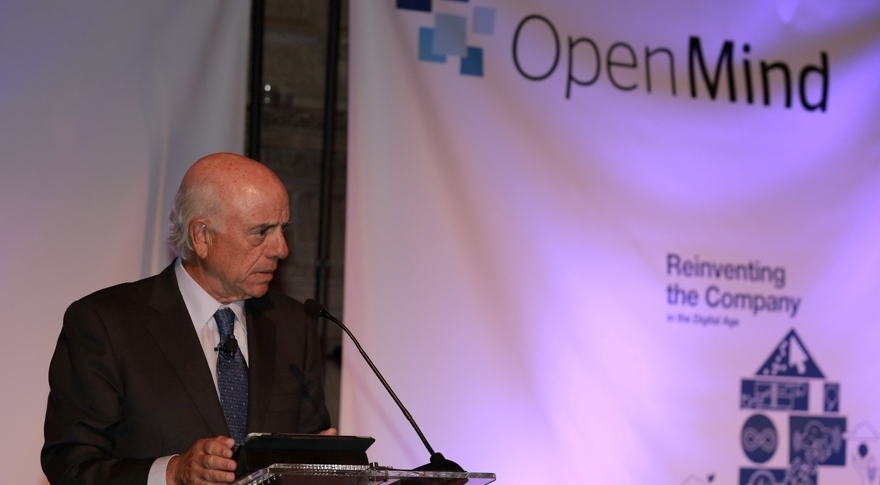Francisco González has presented the book “Reinventing the Company in the Digital Age” at Harvard University. This is the seventh volume in BBVA’s annual series dedicated to analyzing the major issues of our time in which authors from around the world are participating with the goal of “helping people understand the changes that are continually reshaping our world”.
The Bank´s Chairman focused on how this technological and digital transformation has already reached the financial world. ”A new digital ecosystem is being built. One in which launching new products and services is much easier, cheaper and faster that it was a few years ago. Startups, developers, designers, large digital companies, all interact in this ecosystem, simultaneously competing and collaborating”.
In the opinion of Mr. González , “Many conventional banks are going to fall by the wayside. Those that make it will no longer be ‘banks’, but software companies, competing with the digital players and with a completely different value proposition”.
Francisco González expressed his conviction that BBVA “is now in a position to lead the process of transformation of the banking industry”, while bearing in mind that “we are leaders but we are running a race which as no discernible finish line, not even a pre-fixed route. Our strategy is to encourage change and to keep working to remove the practices and structures that stand in the way of change. This is the only way to maintain our leadership and extract value from it in the exciting new times to come”.
The transformation of banks must start with the foundation, the technological platform, said Francisco González, and this “is a long and complex process. We at BBVA know this, because we started our digital journey eight years ago” and the group’s first move was to significantly increase our IT investments to build a brand new, real-time client-centric, modular and scalable platform “not only to better satisfy our customer demands, but also to improve radically cyber security and data protection”.
At the same time, “at BBVA we have comprehensively reengineered our processes and promoted a change of culture in step with our technological overhaul”, added Francisco González, stressing that the bank has achieved very significant results over the last few years: “From December 2011 we have more than doubled our active digital customers. At the end of March 2015 we counted 12.5 million, of which 50% (more than 6 million) used mobile technologies”.
The Chairman of BBVA has also pointed out that in 2014 the Group created a Digital Banking division in order to accelerate the bank’s digital transformation across the board.
Along with Francisco González, the authors of the book, Peter Thompson, Professor at Henley Business School, and Esteban García-Canal, Professor at the Universidad de Oviedo, also participated in the presentation.
Peter Thompson remarked that in just one decade the digital revolution underway brought about more changes in the way we live than the industrial revolution did in a century.
In his opinion, societies are increasingly demanding higher–quality jobs that are smarter, more collaborative and flexible, more satisfactory and ensure a better balance between professional and personal lives. This need has spurred a revolution in work practices and management, including the use of technology to develop new physical and virtual work environments adapted to new requirements.
Esteban García-Canal has focused on the rise of emerging economies –which in just 20 years have gone from representing 15% of economic activity to 50% at present– and the companies with corporate offices in these economies. Many of these companies were small players until recently and today they are challenging the most consolidated multinationals.
In the opinion of García-Canal, these companies, created in countries with fragile institutional environments, have taken advantage of the experience acquired in their home countries to compete in complex environments. Furthermore, and although it seems paradoxical, their scant international presence has allowed them to adopt a strategy and an organizational structure that has been ideal in the current context in which emerging economies are growing very quickly.
